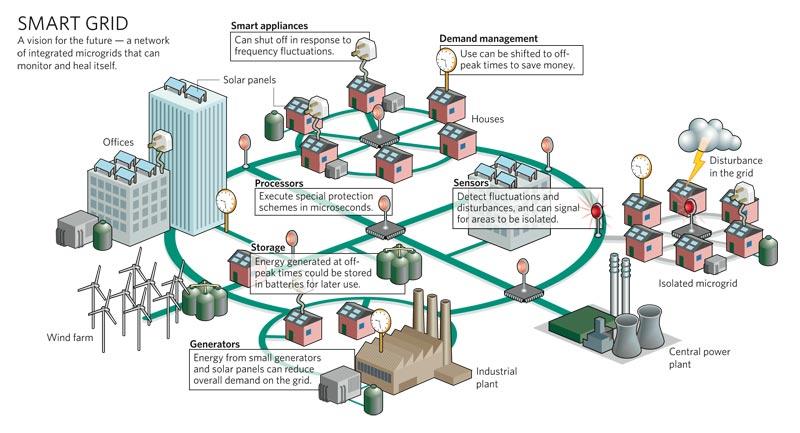ScienceDaily (Aug. 17, 2012) — An economically feasible way to store solar energy in existing residential power networks is the subject of an award winning paper written by two Virginia Tech electrical engineers and presented at an international conference.
Reza Arghandeh of Blacksburg, Va., a doctoral candidate in the Bradley Department of Electrical and Computer Engineering at Virginia Tech, won the best student paper award at the 20th International Conference on Nuclear Engineering, held in conjunction with the American Society of Mechanical Engineering Power 2012 Conference at Anaheim, Calif.. His advisor is Robert Broadwater, professor of electrical and computer engineering, who specializes in electric power system analysis and design.
In their paper, they acknowledge that solar energy resources are "intermittent, seasonal, and non-dispatchable." However, the current national climate with its deregulation policies, electricity tariffs, control strategies and demand management are "significant tools for flexible and resilient operation of power systems with photovoltaic adoption levels," Arghandeh argued.
"Selling the household generated electricity into the electric energy market and the storage of electricity in storage systems and demand control systems provide a variety of economic opportunities for customers and utility companies to use more renewable resources," he added.
Some residential houses are already doing just this -- selling power back to an electrical distribution industry. But Arghandeh and Broadwater's work provides an optimization algorithm for a Distributed Energy Storage (DES) system on a broad scale. The system they developed presents a fleet of batteries connected to distribution transformers. The storage system can then be used for withholding distributed photovoltaic power before it is bid to market, Arghandeh explained.
"Withholding distributed photovoltaic power, probably gained from rooftop panels, represents a gaming method to realize higher revenues due to the time varying cost of electricity," he said.
Arghandeh is referring to the peak usage of energy systems such as the early evening hours when families return home from school and from work versus the low usage times that occur in the early morning hours when most households are asleep. "The distributed photovoltaic power adoption can be controlled with the help of real-time electricity price and load profile," he confirmed. More


No comments:
Post a Comment